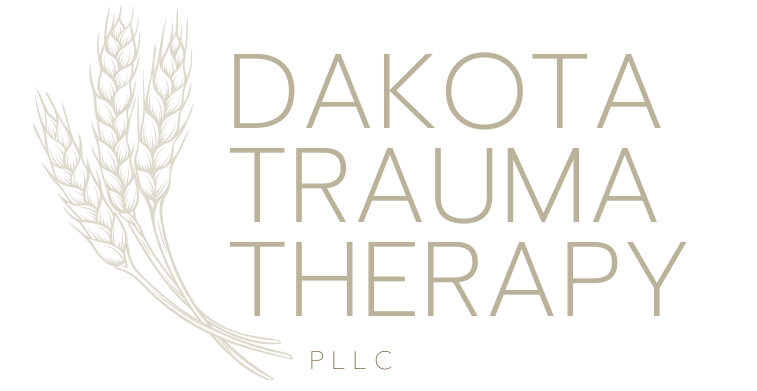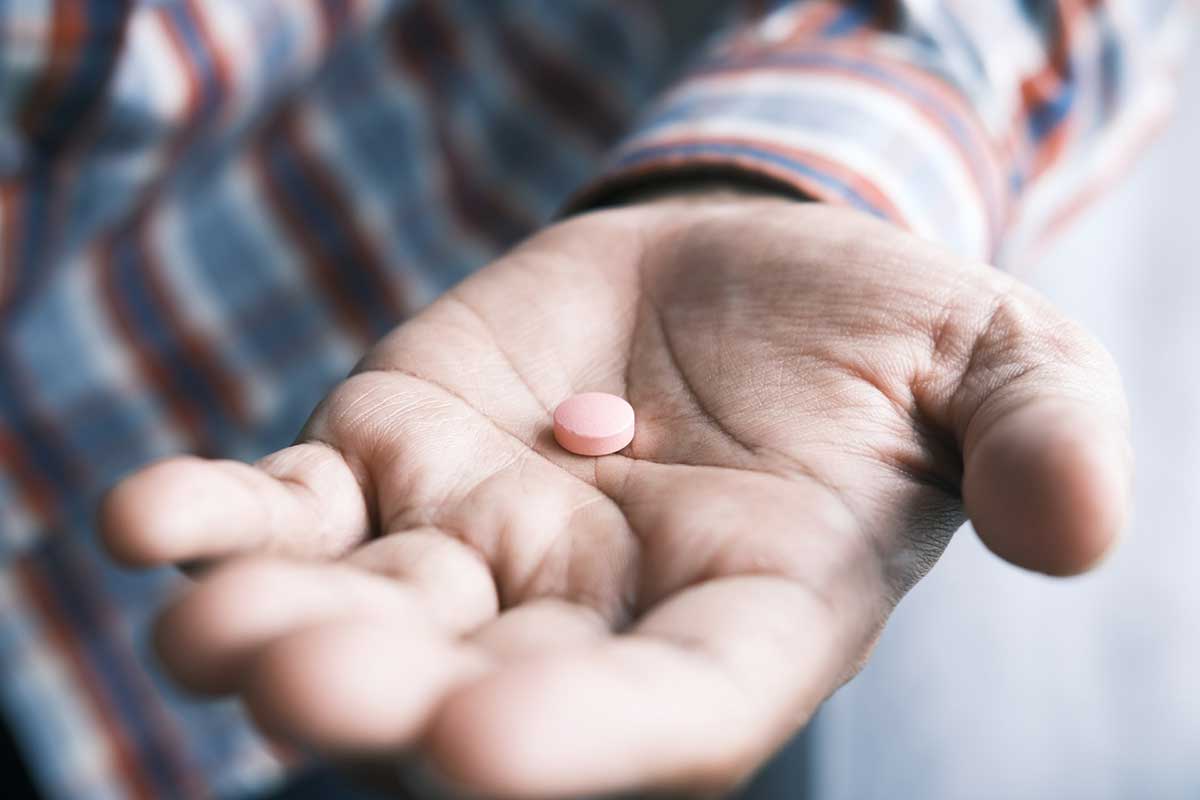Everyone has experienced stress or anxiety at some time in their lives. Anxiety is a transient state for some people; however, for some people, it can be a long-term health problem that can result in high-functioning anxiety and anxiety disorders that affect their potential to function on a daily basis.
While sleeplessness is a typical symptom of anxiety, sleep deprivation may also cause such a mental illness. This link leads to a cycle of insomnia and anxiety. People who suffer from persistent sleeplessness are more likely to acquire anxiety disorders. (1)
Melatonin, a sleep hormone, has been demonstrated to alleviate various anxiety symptoms. When it is dark outside, your body creates more melatonin, which aids with sleep. Melatonin is also accessible as a supplement. These supplements have been proven to be helpful in the treatment of sleep disorders in clinical investigations. (2)
Melatonin is also being researched for other purposes, such as anxiety. Melatonin, according to some, may help with anxiety by boosting sleep. It might also have a direct impact on anxiety symptoms.
This blog will look at the connection between melatonin, sleep, and anxiety and how melatonin can help with anxiety, so let’s get started.
What is Melatonin?
Melatonin is a hormone generated naturally by the pineal gland in the brain, an endocrine gland located in the central part of the brain. (3)This hormone is released at nighttime to regulate the circadian cycle, the 24-hour pattern in living beings’ biological activities.
Although circadian rhythms are primarily internal processes, they may be influenced by environmental conditions such as temperature, and they are critical for establishing regular sleeping and feeding cycles. (4)
Melatonin is synthesized more at night than during the day. It works when you are sleeping. Melatonin signals your body when it is time to sleep and helps to keep the sleep-wake cycle in check. Melatonin synthesis rises as the sun sets and falls when the sun comes up.
You may suffer symptoms such as sleeplessness, exhaustion, or sleep problems if your melatonin levels have dropped. A melatonin insufficiency will typically result in the symptoms of sleep deprivation, such as increased stress or mood swings. (5)
Fortunately, melatonin supplements are available to assist you in reaping the advantages of this natural hormone when your body does not make enough of it on its own.
What is the link between Melatonin, sleep, and anxiety?
Insomnia is associated with anxiety and stress, so it logically follows that utilizing this sleep aid might help reduce anxiety, enhance cognitive performance, and improve overall mood.
Sleep and mental health are inextricably linked. A healthy person will go through four stages of sleep every 90 minutes. During the first stage of sleep, the body temperature lowers, and the heart rate decreases. Your body is working far harder than you believe by the fourth phase, undergoing physiological changes that improve your immune response and strengthen your nervous system for the day. (6)
Disturbances in sleep that hinder this transition between these four phases can cause chaos in your brain. They might harm your cognitive function; they could produce stress hormones, and, most importantly, your emotional control could be disrupted. (7)
Melatonin comes into play in this situation. While melatonin may not directly lower anxiety, it may assist in reducing it indirectly by regulating the sleep cycle and improving sleep quality. Melatonin is thought to reduce anxiety by controlling the sleep cycle and helping the body and brain maintain a regular schedule. (8)
The implications of melatonin on sleep deprivation-induced anxiety-like behaviors were investigated in a 2017 research to determine the various processes involved.
This study found substantial evidence that melatonin administration can alleviate anxiety-like behaviors caused by sleep loss. Melatonin’s antioxidant and free radical scavenging characteristics and its involvement in modulating GABAergic and glutamatergic transmission in the amygdala contribute to this. (9)

How does Melatonin work for anxiety?
When it is dark outside, your body creates more melatonin, which aids in falling asleep and remaining asleep. A single night of sleep deprivation may leave you irritable and exhausted the next day. On the other hand, chronic sleep deprivation might contribute to anxiety and despair in the long run.
Melatonin has been shown in tests to boost the concentrations of gamma-aminobutyric acid (GABA) in the brain, in addition to helping to lessen anxiety symptoms through a good night’s sleep. GABA is a neurotransmitter that acts as an anti-anxiety agent. Glutamate, an activating neurotransmitter, is counteracted and balanced by it. (10)
What type of anxiety can Melatonin treat?
Anxiety may be classified into several categories based on the underlying causes and symptoms. Melatonin can be used to treat a specific type of anxiety disorders, some of which are as follows:
Surgical Anxiety
Anxiety about going to the hospital or having surgery is widespread among those who need medical procedures. Sedatives can help with this type of anxiety, but they typically come with unpleasant side effects. Melatonin has helped some patients cope with their operations by reducing anxiety and discomfort. (11)
Anxiety in old age
According to new research, the elderly suffer more significant anxiety than initially expected. Physical deterioration, less social interaction, and changes in the mental state might all cause anxiety in the elderly. Melatonin, when given overnight, may help old aged persons with anxiety and distress. (12)
Generalized Anxiety
People who suffer from generalized anxiety may overreact to everyday problems and challenges. They are subjected to extreme psychological stress due to pretty insignificant issues. Excessive, often unjustified concerns can make it difficult to operate normally. Supplemental melatonin can help people with generalized anxiety disorder lower their anxiety scores and symptoms.
Efficacy of Melatonin according to science
Now that we have established a relationship between melatonin and anxiety, let us look at the studies and systematic reviews that support these claims.
The majority of human melatonin research has been conducted on people undergoing surgery. Surgery may be a painful and anxiety-inducing process; thus, medications are routinely given to help. However, according to a recent study, melatonin may be equally effective as prescription medications.
A 2015 meta-analysis of trials evaluating the use of melatonin in anti-anxiety medicine and a sugar tablet revealed that consuming melatonin prior to surgery was more beneficial than using the sugar pill in lowering anxiety. According to most research, Melatonin was just as helpful as the more potent medicine. (13)
A 2018 study discovered that melatonin, as well as an oral Alprazolam, a sedative medicine used to encourage sleep before surgery, significantly minimizes anxiety. (14)
A second 2018 research involving individuals who had had heart surgery discovered that melatonin worked much better than Oxazepam for enhancing sleep and lowering anxiety symptoms following surgery. (15)
One earlier research looked at the impact of melatonin on sleep and mental issues in older people. Melatonin functioned better than a placebo sugar tablet in this trial to enhance sleep and reduce feelings of despair and anxiety. (16)
Melatonin has also shown potential as a depression therapy. According to a 2006 study undertaken by experts, modest dosages of melatonin may be more beneficial for the seasonal affective disorder (SAD) that develops in many people during the winter months when days are short. (17)
We may assume from these trials that melatonin may successfully lower anxiety before and after surgery, albeit we do not yet know if it is also helpful for other types of anxiety, such as panic attacks. More clinical trials are required to establish a clear understanding.
Melatonin in seasonal affective disorder
When considering melatonin levels and anxiety, it is necessary to mention seasonal affective disorder. The quantity of melatonin produced by your body alters due to light exposure levels. When sunshine exposure is scarce, such as during the winter’s decreased daylight hours, a transient depression might develop.
SAD is more prevalent in higher latitude zones. Melatonin levels will begin to fluctuate at unusual periods due to decreased light exposure.
SAD light boxes are unique boxes that can be used to cure Seasonal Affective Disorder. The box produces a light that is way much brighter than typical daylight. Using a SAD light box for thirty minutes every day will assist in normalizing melatonin synthesis, alleviating anxiety and restlessness symptoms. (18)
How to use Melatonin for anxiety?
It is as simple as taking a melatonin tablet before night to treat anxiety. You can take these supplements in several ways.
Melatonin pills are widely accessible over the counter; you may take them orally, the most popular dosage technique. Aside from that, you may either take it sublingually by melting the pill beneath your tongue or apply it to your skin as a cream or lotion. Taking it intravenously is an unusual procedure that should only be utilized with the guidance of medical specialists.
Clinical studies recommend taking 3-10 mg before night for best outcomes. Melatonin at higher dosages does not always function better. However, the suggested amount may be influenced by age, body weight, and melatonin responsiveness in each person.
Consider trustworthy, high-quality choices while seeking melatonin supplements. The Food and Drug Administration (FDA) does not regulate supplements like melatonin for the treatment of anxiety; therefore, it is essential to conduct your homework and identify dependable and trusted sources that are free from contamination and suitable to consume.
Melatonin is generally regarded as safe by medical practitioners. However, there are several times when you should not consume melatonin, such as before driving or after consuming alcohol or other sleeping medications. Before using melatonin, you should also see your pharmacist or healthcare practitioner.
How long does Melatonin take to work for anxiety?
Melatonin enters the body fast. Melatonin reaches its peak level around 1 hour after taking an oral dose. You may begin to feel fatigued at this point. Melatonin, like other medications, has a unique effect on each individual. It may take you longer or shorter to feel the effects.
Melatonin supplements are available in a quick-release form; as soon as you consume them, they break down, releasing melatonin into your bloodstream.
Extended-release melatonin, also known as controlled-release melatonin, dissolves more slowly. It gradually releases melatonin over time, which may resemble how your body naturally creates melatonin at night.
Depending on your symptoms and sensitivities, your doctor can recommend whether to take regular or extended-release melatonin.
Dosage of Melatonin
Melatonin dosage for anxiety is typically 1 to 5 mg. It is advised to begin with the lowest feasible dose. You can gradually increase your consumption to find the ideal dosage that allows you to fall asleep without producing side effects. (19) Consuming too much melatonin might affect your circadian cycle and induce daytime sleepiness.
It is crucial to remember that the Food and Drug Administration does not closely monitor melatonin. This is due to the fact that melatonin is not classified as a medication. As a result, it can be sold as a nutritional supplement, similar to vitamins and minerals, which the FDA does not closely regulate.
Since the guidelines for dietary supplements differ, a manufacturer may list an incorrect dose of melatonin on the packaging.
Is it preferable to take melatonin during day time?
While melatonin can help relax your mind and alleviate nighttime restlessness, anxiety can hit at any time of day or night. It is not recommended to take it during the day since melatonin might make you feel drowsy. It is not the best option for you, especially if you are working.
In such cases, there are various coping skills for anxiety that you may use to deal with it during the day. You can meditate, exercise, put anxiety bracelets on your wrists, occupy yourself with fidget toys for anxiety, or sip tea with herbs for anxiety to help you relax throughout the day.
Side effects of Melatonin
When used according to the product’s specified dose directions, melatonin supplements seldom produce adverse effects. There have been no reports of significant adverse effects in melatonin trials for surgery-related anxiety.
Melatonin supplementation is a straightforward and low-risk approach. While its short-term usage has been proven safe, additional research is needed to assess potential long-term impacts. Undesirable side effects or adverse occurrences are uncommon, and when they do occur, they are usually minor.
Common adverse effects include headaches, drowsiness, nausea, and stomach discomfort. Melatonin may also interact with blood thinners, blood pressure medicines, and other sleep-inducing treatments.
If you are an older adult or have a medical condition that requires the use of this supplement, see your doctor to determine if melatonin is appropriate for you. They may be able to prescribe an alternative medication to help you get short- or long-term anxiety alleviation.
Precautions
Although melatonin is generally safe, certain people should be considerate before consuming it, including:
Pregnant women
Melatonin may have comparable effects to birth control, making pregnancy more difficult. There is insufficient reliable evidence to determine if melatonin is safe to consume while pregnant. It is advisable not to take melatonin when pregnant or attempting to get pregnant until more research is conducted. (20)
Children
Melatonin may be safe to consume orally for a short period. Melatonin is generally well tolerated at dosages of up to 3 mg per day in children and 5 mg per day in teenagers. There is a considerable risk that melatonin may interfere with adolescent growth; hence it should only be given to children who have a medical condition. There is not enough data to tell whether melatonin is harmless in children when taken orally over time. (21)
Hypertensive patients
Melatonin can interact with some beta-blockers and elevate blood pressure in those using it to treat blood pressure. As a result, people taking blood pressure medications should avoid it. (22)
Transplant recipients
People who have received a transplant take immunosuppressive medicines frequently. Melatonin has the ability to boost immunological function. Some transplant drugs may be affected as a result of this. (23)
Besides these conditions, melatonin may worsen bleeding in patients with bleeding disorders. Furthermore, in certain circumstances, it aggravates the symptoms of depression. Melatonin use may raise the likelihood of having a seizure. So it should be avoided in all such cases, and if you use it while having a medical issue, visit your doctor and take their instructions.
Conclusion
Melatonin has been shown to be effective in the treatment of anxiety. Anxiety and a lack of quality sleep go hand in hand, and they can create a destructive cycle. Breaking the cycle is the only way out, and Melatonin can assist you in doing so. To begin with, getting adequate sleep is critical to naturally treating your anxiety and improving your overall well-being.
Melatonin should be given between 30 and 60 minutes before bedtime. Melatonin can last for up to 5 hours in your body, depending on your age and overall health. Melatonin can be dangerous if taken in excess, so start with the minimal dose feasible. Excessive melatonin consumption may cause your circadian cycle to be disrupted.
You should discuss it with your doctor to see whether it is the proper treatment for your anxiety and if lack of sleep is the root cause. Your doctor will assess your condition and advise you on the best course of action.




